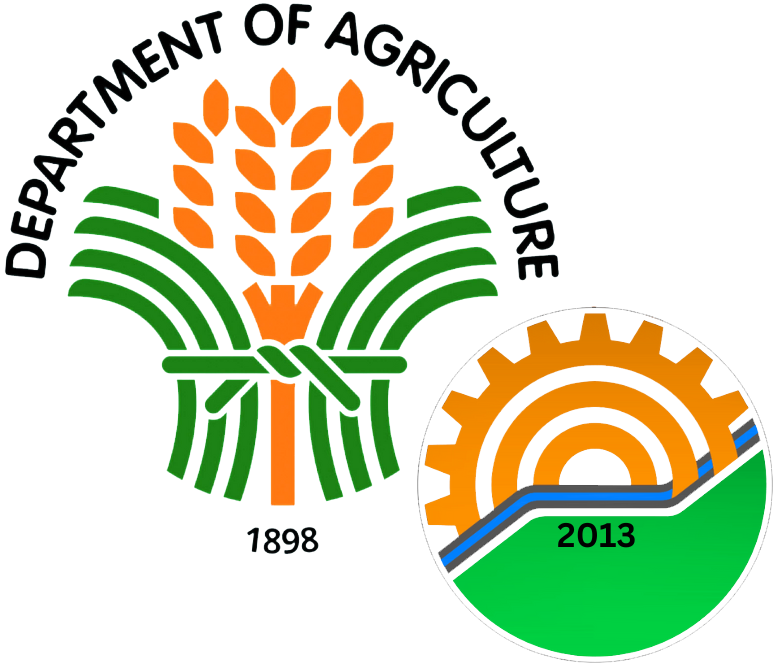

DEPARTMENT OF AGRICULTUREBUREAU OF AGRICULTURAL AND FISHERIES ENGINEERINGSugar Center, Annex II Building Extension, North Avenue, Diliman Quezon City

Several government agencies have joined forces to address food security at the barangay level. The Department of Agriculture – Bureau of Agricultural and Fisheries Engineering (DA-BAFE) is leading this initiative, in collaboration with the Department of the Interior and Local Government (DILG), Department of Labor and Employment – Bureau of Workers with Special Concerns (DOLE-BWSC), Technical Education and Skills Development Authority (TESDA), and Agricultural Training Institute (ATI).
DA-BAFE’s farm-to-market roads (FMRs), DOLE’s TUPAD or Tulong Panghanapbuhay sa Ating Disadvantaged/Displaced Workers program, and TESDA’s and ATI’s training programs all play significant roles in contributing to food security.

A key concern in this initiative is the maintenance of farm to market roads (FMRs), which are primarily barangay roads. DA-BAFE’s FMRs are crucial for the transportation of agricultural goods from farms to markets as these infrastructures improve the mobility of people, goods, and services providing access to employment and basic social services.
During a meeting with officials from the aforementioned agencies on September 5, 2023, DA-BAFE Director Ariodear Rico discussed the need for improved maintenance of FMRs, particularly in fourth to sixth class municipalities, which are among the poorest. “Based on our findings, the FMRs are poorly maintained that’s why we are coming up with collaborative program with TESDA, DOLE and DILG,” said Dir. Rico.
Barangays play a crucial role in implementing President Ferdinand Marcos Jr.’s priority programs, and their support and cooperation are essential, said DILG Undersecretary for Barangay Affairs Felicito Valmocina. The food security problem as well as climate change and global warming may be addressed with the government providing support to the barangays. “Kapag napagtanim natin ng gulay yung mga mahihirap, gagaan ang buhay nila,” said Usec. Valmocina who expressed confidence that the barangays would actively support the program and fulfill their respective roles.
DOLE-BWSC Director Ahmma Charisma Lobrin-Satumba mentioned that barangay workers involved in the program could benefit from TUPAD. This assistance package provides emergency employment for displaced, underemployed, and seasonal workers. TUPAD beneficiaries are involved in various projects like repair, maintenance, and/or rehabilitation of FMRs, said Dir. Satumba. These activities contribute to food security by improving infrastructure related to food production and distribution.
Training is essential for understanding the concepts of food security and livelihoods. It helps in assessing the nutrition situation, designing and implementing programs that address nutrition problems, and evaluating the nutritional outcomes of these programs.
Upon completion of the employment project, TESDA or its accredited training institutions will conduct skills training for TUPAD beneficiaries under its Training for Work Scholarship Program (TWSP). TESDA Deputy General for Special Concerns, Mr. Vidal Villanueva III, noted that TESDA’s programs in urban gardening, hydroponics, and aquaponics could aid beneficiaries in the barangays. TUPAD beneficiaries could undergo an intensive onsite training on organic farming and the production of organic fertilizers and vegetables by TESDA’s training specialists. The training includes orientation and hands-on demonstration on organic farming, fermentation of fruit juice, plot cultivation, and soil structuring.
The meeting concluded with an agreement that DOLE’s TUPAD and TESDA’s scholarship program would support the operation and maintenance requirements of FMRs in collaboration with DILG. Meanwhile, DA-BAFE and ATI will assist TESDA in developing training modules and deploying trainers and competency standards.
In summary, FMRs enhance the transportation of agricultural goods, TUPAD program beneficiaries contribute to infrastructure development related to food production and distribution, and training improves understanding and implementation of food security strategies. All these factors work together to promote food security. ###(Marshall Louie Asis, MC /DA-BAFE)